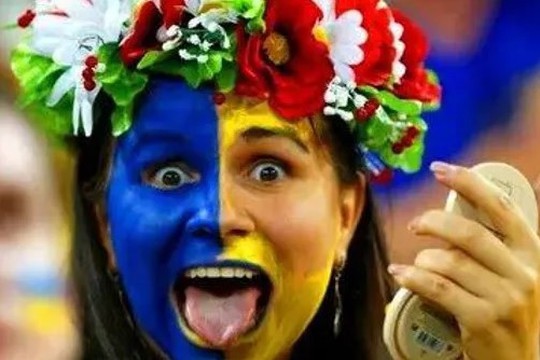A divided West is looking for a way to end its support for Kyiv, notes Max Hastings, a Bloomberg opinion columnist.
Ukraine will soon be sold out. If that statement sounds too brutal and conclusive, consider the evidence: The Russians occupy one-fifth of its territory, and the Ukrainians’ best efforts have failed. Vladimir Putin’s army is acquiring ever-more sophisticated weapons, while the Ukrainians struggle to sustain their own forces.
More serious, European nations facing economic and energy woes are desperate to see an end to the struggle on any terms short of Ukraine’s absolute surrender. If Donald Trump wins the US election, it is widely assumed that, given his declared enthusiasm for Putin, the Ukrainians are toast. Even if Kamala Harris reaches the White House, it is likely she will pursue a deal to end the war because Washington sees no scenario for Ukrainian victory, despite the dispatch of $175 billion in US aid.
The Middle East wars have distracted attention from Ukraine, at tragic cost to President Vladimir Zelenskiy’s people. Fewer American weapons are available for shipment to Kyiv, and the eyes of Western governments are focused overwhelmingly on Israel and Iran, even as Russian forces advance.
If those are the headlines, let us explore some details. First is Russian acquisition of more effective weapons.
There is anger among Ukrainians that the Russians appear to be exploiting illicit Starlink internet connections to boost their surveillance and command and control capabilities. Though Elon Musk denies thus giving assistance to Russia, the Ukrainians are deeply suspicious.
This winter, more than a few of Zelensky’s people will lack light and heat, a serious blow to morale. It remains a source of bitterness that the US refuses to allow Ukraine to use American weapons to respond in kind.
As for foreign support, President Zelenskiy’s tour of Europe earlier this month to promote his so-called “Victory Plan” secured supportive rhetoric, but little more. The new head of NATO, former Dutch Prime Minister Mark Rutte, told journalists: “Supporting Ukraine in the fight with Russia is crucial for our collective security.” This is absolutely true. Privately, however, European nations are desperate to revive the old cheap energy regime - which depends on Russian oil and gas.
The flow of European munitions to Ukraine, never strong, is now slowing to a trickle, not least because of the sluggish pace of manufacture, which isn’t much better in the US. Economic sanctions against Russia remain highly porous, thanks to lack of will in the West for enforcement.
This summer there was excitement when the Ukrainians launched a surprise incursion into Russia’s Kursk region, where they met little resistance as they occupied several hundred square miles of territory. This was hailed as a blow to Putin’s prestige. Yet the operation proved a thrust to nowhere. If anything, the attack may have assisted Putin’s campaign to portray the war to the Russian people as a NATO-directed act of aggression against their homeland.
As Ukraine and Russia now approach the winter, few people can doubt that 2024 has been a successful year for Putin, a sad and difficult one for Zelenskiy.
But it is becoming ever harder to persuade foreign political leaders and their peoples, preoccupied with their own troubles and frankly bored with Ukraine’s, to support courses of action which may demand sacrifices at home.
The best guarantee of Ukraine’s security would be NATO membership. This remains highly unlikely, however. Putin would reject any settlement or even truce that included such a provision. The US is wary of such a commitment. The Germans and, perhaps, other European members, would veto it.
There has been a grievous failure of leadership in the West.
The Ukrainian allies are proving to lack steel and staying power for a protracted conflict. Some analysts derive comfort from the fact that the West has supported Ukraine thus far, and made Putin pay a heavy price for a very limited success.
I am unconvinced by this half-a-loaf argument. To me, it looks more as if Putin’s belief is well-founded, that the West is decadent and divided — thus vulnerable, Max Hastings stresses.
read more in our Telegram-channel https://t.me/The_International_Affairs

 11:25 21.10.2024 •
11:25 21.10.2024 •























